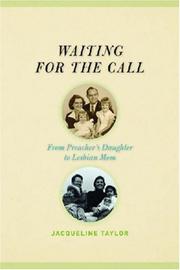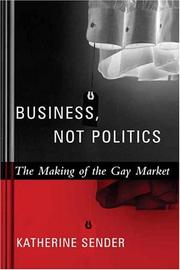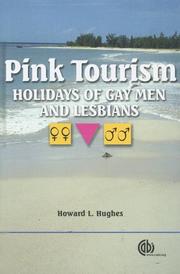| Listing 1 - 10 of 51 | << page >> |
Sort by
|
Book
ISBN: 0299228894 0299228843 Year: 2008 Publisher: Madison, Wisconsin : University of Wisconsin Press,
Abstract | Keywords | Export | Availability | Bookmark
 Loading...
Loading...Choose an application
- Reference Manager
- EndNote
- RefWorks (Direct export to RefWorks)
Maureen Seaton traces the emergence of her identity in quick, droll, often surprising sketches. She finds herself alternately in the company of winos, swingers, and drag kings; in love with Jesus H. Christ and a butch named Mars; in charge of two children (her own!); writing stories that shrink painfully to poems; and unable to reckon how she landed in any of these predicaments. In her passage from near-nun to suburban mom to woke woman, she shakes herself out of a sloshed stupor and delights in the spree.

ISBN: 080148099X 9781501720031 1501720031 0801428572 9780801428579 9780801480997 150172004X 1501728032 Year: 1993 Volume: *1 Publisher: Cornell University Press
Abstract | Keywords | Export | Availability | Bookmark
 Loading...
Loading...Choose an application
- Reference Manager
- EndNote
- RefWorks (Direct export to RefWorks)
Within a society that long considered "lesbian motherhood" a contradiction in terms, what were the experiences of lesbian mothers at the end of the twentieth century? In this illuminating book, lesbian mothers tell their stories of how they became mothers; how they see their relationships with their children, relatives, lovers, and friends and with their children's fathers and sperm donors; how they manage child-care arrangements and financial difficulties; and how they deal with threats to custody. Ellen Lewin's unprecedented research on lesbian mothers in the San Francisco area captured a vivid portrait of the moment before gay and lesbian parenting moved into the mainstream of U.S. culture. Drawing on interviews with 135 women, Lewin provided her readers with a new understanding of the attitudes of individual women, the choices they made, and the texture of their daily lives.
Lesbian mothers --- Single mothers --- Lesbian parents --- Mothers --- United States --- Gay & Lesbian studies / LGBTQ studies

ISBN: 0472904272 047202227X 0472032380 0472115944 Year: 2010 Publisher: Ann Arbor : University of Michigan Press,
Abstract | Keywords | Export | Availability | Bookmark
 Loading...
Loading...Choose an application
- Reference Manager
- EndNote
- RefWorks (Direct export to RefWorks)
Christian lesbians --- Taylor, Jacqueline, --- Lesbian Christians --- Lesbians

ISBN: 0231127340 1322353360 0231509162 Year: 2004 Publisher: New York, N.Y. Columbia University Press
Abstract | Keywords | Export | Availability | Bookmark
 Loading...
Loading...Choose an application
- Reference Manager
- EndNote
- RefWorks (Direct export to RefWorks)
In a hard-hitting book that refutes conventional wisdom, Katherine Sender explores the connection between the business of marketing to gay consumers and the politics of gay rights and identity. She disputes some marketers'claims that marketing appeals to gay and lesbian consumers are a matter of "business, not politics" and that the business of gay marketing can be considered independently of the politics of gay rights, identity, and visibility. She contends that the gay community is not a preexisting entity that marketers simply tap into; rather it is a construction, an imagined community formed not only through political activism but also through a commercially supported media. She argues that marketing has not only been formative in the constitution of a GLBT community and identity but also has had significant impact on the visibility of gays and lesbians.
Marketing --- Sociology of the family. Sociology of sexuality --- Gay consumers --- Lesbian consumers --- Consumers

ISBN: 1280736003 1845930762 184593119X 9786610736003 Year: 2006 Publisher: Wallingford : CABI,
Abstract | Keywords | Export | Availability | Bookmark
 Loading...
Loading...Choose an application
- Reference Manager
- EndNote
- RefWorks (Direct export to RefWorks)
This book presents a detailed picture of gay and lesbian tourism from, primarily, a marketing perspective and examines how marketing activity engages with and affects social issues relating to homosexuality. It gives an overview of the nature of homosexuality and relevant issues that bear upon tourism and marketing.
Gay consumers. --- Gay men --- Lesbian consumers. --- Lesbians --- Sexual orientation. --- Tourism --- Attitudes. --- Marketing. --- Gays
Book

ISBN: 0993110282 0993110231 9780993110283 Year: 2018 Publisher: [s.l.] : University of London,
Abstract | Keywords | Export | Availability | Bookmark
 Loading...
Loading...Choose an application
- Reference Manager
- EndNote
- RefWorks (Direct export to RefWorks)
Envisioning Global LGBT Human Rights: (Neo)colonialism, Neoliberalism, Resistance and Hope is an outcome of a five-year international collaboration among partners that share a common legacy of British colonial laws that criminalise same-sex intimacy and gender identity/expression. The project sought to facilitate learning from each other and to create outcomes that would advance knowledge and social justice. The project was unique, combining research and writing with participatory documentary filmmaking. This visionary politics infuses the pages of the anthology. The chapters are bursting with invaluable first hand insights from leading activists at the forefront of some of the most fiercely fought battlegrounds of contemporary sexual politics in India, the Caribbean and Africa. As well, authors from Canada, Botswana and Kenya examine key turning points in the advancement of SOGI issues at the United Nations, and provide critical insights on LGBT asylum in Canada. Authors also speak to a need to reorient and decolonise queer studies, and turn a critical gaze northwards from the Global South. It is a book for activists and academics in a range of disciplines from postcolonial and sexualities studies to filmmaking, as well as for policy-makers and practitioners committed to envisioning, and working for, a better future.
Gay activists --- Gay liberation movement --- Gay rights --- Sexual minorities --- Gender minorities --- GLBT people --- GLBTQ people --- Lesbigay people --- LBG people --- LGBT people --- LGBTQ people --- Non-heterosexual people --- Non-heterosexuals --- Sexual dissidents --- Minorities --- Gay and lesbian rights --- Gay men --- Gays --- Lesbian rights --- Lesbians --- Rights of gays --- Rights of lesbians --- Civil rights --- Gay and lesbian liberation movement --- Gay and lesbian movement --- Gay and lesbian rights movement --- Gay lib --- Gay movement --- Gay rights movement --- Homophile movement --- Homosexual liberation movement --- Homosexual movement --- Homosexual rights movement --- Lesbian liberation movement --- Lesbian rights movement --- Social movements --- Political activists --- Legal status, laws, etc. --- Civil rights (LGBTQ) --- LGBTQ+ people --- LGBTQ+ civil rights --- Activists, Gay --- Gay rights activists --- Rights activists, Gay --- Sexual minority activists

ISBN: 081475595X 0814759718 9780814759714 Year: 1998 Publisher: New York, NY : New York University Press,
Abstract | Keywords | Export | Availability | Bookmark
 Loading...
Loading...Choose an application
- Reference Manager
- EndNote
- RefWorks (Direct export to RefWorks)
Many of us have grown up with the language of civil rights, yet rarely consider how the construction of civil rights claims affects those who are trying to attain them. Diane Miller examines arguments lesbians and gay men make for civil rights, revealing the ways these arguments are both progressive--in terms of helping to win court cases seeking basic human rights--and limiting--in terms of framing representations of gay men and lesbians. Miller incorporates case studies of lesbians in the military and in politics into her argument. She discusses in detail the experiences of Colonel Margarethe Cammermeyer, who was dishonorably discharged from the National Guard after 27 years of service when she revealed that she was a lesbian, and Roberta Achtenberg, who was nominated by Clinton for the job of Assistant Director of Housing and Urban Development and became the first gay or lesbian to face the confirmation process. Drawing on these cases and their outcomes, Miller evaluates the advantages and disadvantages of privileging civil rights strategies in the struggle for gay and lesbian rights.
Achtenberg, Roberta. --- Cammermeyer, Margarethe, 1942-. --- Gay rights -- United States -- History. --- Lesbian feminism -- United States. --- Lesbians -- Legal status, laws, etc. -- United States. --- Women’s rights -- United States -- History. --- Gay rights --- Lesbians --- Women's rights --- Lesbian feminism --- Gender & Ethnic Studies --- Social Sciences --- Gay & Lesbian Studies --- History --- Legal status, laws, etc --- Female gays --- Female homosexuals --- Gay females --- Gay women --- Gayelles --- Gays, Female --- Homosexuals, Female --- Lesbian women --- Sapphists --- Women, Gay --- Women homosexuals --- Gay and lesbian rights --- Gay men --- Gays --- Lesbian rights --- Rights of gays --- Rights of lesbians --- Civil rights --- Women --- Feminism --- Legal status, laws, etc. --- Women's rights -- United States -- History.

ISBN: 0472106449 9780472022762 Year: 1998 Volume: *3 Publisher: University of Michigan Press
Abstract | Keywords | Export | Availability | Bookmark
 Loading...
Loading...Choose an application
- Reference Manager
- EndNote
- RefWorks (Direct export to RefWorks)
Gay rights --- Gays --- Legal status, laws, etc. --- Evans, Richard G. --- Trials, litigation, etc. --- Colorado --- Romer, Roy, --- Gay people --- Gay persons --- Homosexuals --- Persons --- Gay and lesbian rights --- Gay men --- Lesbian rights --- Lesbians --- Rights of gays --- Rights of lesbians --- Civil rights
Book
ISBN: 0874216915 0874216923 9780874216929 9780874216912 Year: 2008 Publisher: Logan, Utah Utah State University Press
Abstract | Keywords | Export | Availability | Bookmark
 Loading...
Loading...Choose an application
- Reference Manager
- EndNote
- RefWorks (Direct export to RefWorks)
Mickey Weems applies overtly interdisciplinary interpretation to a subject that demands such a breakdown of intellectual boundaries. This is an ethnography that documents the folk nature of popular culture. The Circuit, an expression of Gay culture, comprises large dance events (gatherings, celebrations, communions, festivals). Music and dance drive a complex, shared performance at these events-electronic house music played by professional DJs and mass ecstatic dancing that engenders communitas. Other types of performance, from drag queens and concerts to contests, theatrics, and the i In this ethnography that documents the folk nature of popular culture, Mickey Weems applies interdisciplinary interpretation to a subject that demands such a breakdown of intellectual boundaries. The Circuit, an expression of gay culture, comprises large dance events—gatherings, celebrations, communions, festivals. Music and dance drive complex, shared performances—electronic house music played by professional DJs and mass ecstatic dancing that engenders communitas. Other performances, from drag queens and concerts to contests, theatrics, and the individual display of muscular bodies are part of the festivities.Body sculpting through muscle building is strongly associated with the Circuit, and masculine aggression is both displayed and parodied. Weems, a participant-observer with a multidisciplinary background in anthropology, folklore, religious studies, cultural studies, and somatic studies, considers the cultural and ethical dimensions of what to outsiders might seem to be just wild, flamboyant parties. He compares the Circuit to other traditions of ecstatic and communal dance, and uses his grounding in African-Brazilian Candomblé and in religious studies to illuminate spiritual experiences reported by Circuit participants. And, as a U.S. Marine, he offers the nonviolent masculine arrogance of Circuiteers as an alternative to the violent forms of masculine aggression embedded in the military and much of western culture.
Gay and lesbian dance parties - Social aspects - United States. --- Gay and lesbian dance parties -- Social aspects -- United States. --- Gay culture - United States. --- Gay culture -- United States. --- Gay men - United States - Identity. --- Gay and lesbian dance parties --- Gay culture --- Gay men --- Dance --- Music, Dance, Drama & Film --- Social aspects --- Identity --- Identity. --- Gays, Male --- Homosexuals, Male --- Male gays --- Urnings --- Gay subculture --- Lavender culture --- Gay dance parties --- Lesbian and gay dance parties --- Gays --- Men --- Subculture --- Dance parties --- Social life and customs --- Male homosexuals
Book
ISBN: 9789462982741 9462982740 9048532787 9789048532780 Year: 2018 Volume: 14 Publisher: Amsterdam Amsterdam University Press
Abstract | Keywords | Export | Availability | Bookmark
 Loading...
Loading...Choose an application
- Reference Manager
- EndNote
- RefWorks (Direct export to RefWorks)
Is queer really anti-identitarian? And how is it experienced at the European level? At queer festivals, activists, artists and participants come together to build new forms of sociability and practice their ideals through anti-binary and inclusive idioms of gender and sexuality. These ideals are moreover channeled through a series of organizational and cultural practices that aim at the emergence of queer as a collective identity. Through the study of festivals in Amsterdam, Berlin, Rome, Copenhagen, and Oslo, this book thoughtfully analyzes the role of activist practices in the building of collective identities for social movement studies as well as the role of festivals as significant repertoires of collective action and sites of identitarian explorations in contemporary Europe.
Gay pride parades --- Gay liberation movement --- Sociology of the family. Sociology of sexuality --- Sociology of cultural policy --- Community organization --- Europe --- Gay pride marches --- LGBT pride parades --- Pride parades, Gay --- Gay pride celebrations --- Parades --- Gay and lesbian liberation movement --- Gay and lesbian movement --- Gay and lesbian rights movement --- Gay lib --- Gay movement --- Gay rights movement --- Homophile movement --- Homosexual liberation movement --- Homosexual movement --- Homosexual rights movement --- Lesbian liberation movement --- Lesbian rights movement --- Social movements --- Gay pride parades. --- Gay pride parades - Europe. --- Gay liberation movement - Europe --- The arts: general issues --- Electronic, holographic & video art
| Listing 1 - 10 of 51 | << page >> |
Sort by
|

 Search
Search Feedback
Feedback About UniCat
About UniCat  Help
Help News
News